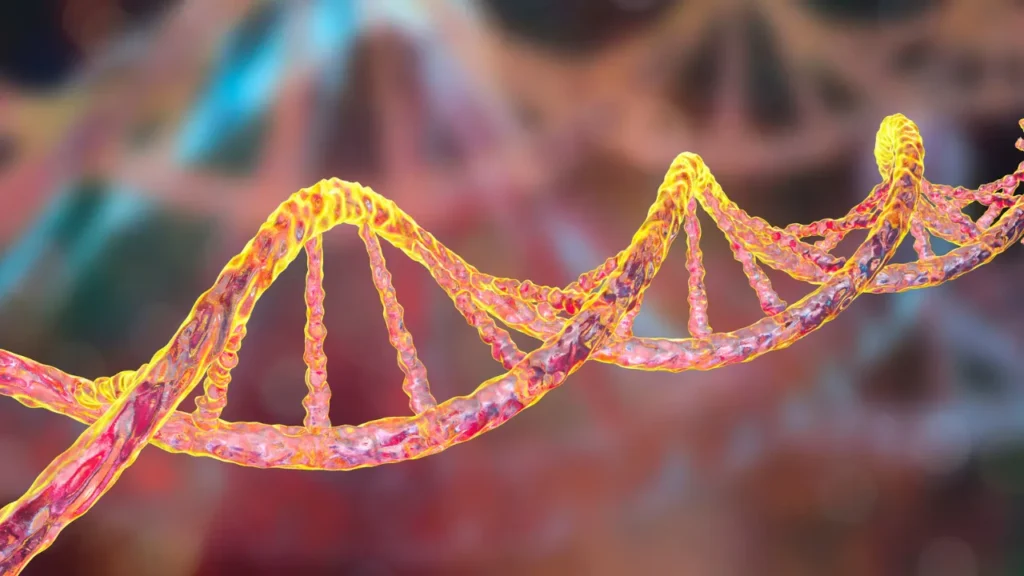Ajuga nipponensis is sometimes referred to as Gendai Ajuga and it is a member of the mint family of plants. This perennial plant can be found in East Asia, specifically in China, Japan, and Korea. The herb has been used for many years to cure a variety of illnesses in traditional medicine. Due to its conceivable health advantages, Ajuga nipponensis has grown in favor in recent years as a nutritional supplement. This page seeks to give a general summary of Ajuga nipponensis’s characteristics, health advantages, recommended dosage, probable side effects, drug interactions, and appropriate usage.
You May Also Like:
Horbaach Lion’s Mane Mushroom Extract Reviews: A Leading Herbal Nootropic Product
Ajuga nipponensis: Benefits, Dosage, Side Effects, Drug Interactions, and Other Important Information is an original (NootropicsPlanet) article.
Nature of Ajuga nipponensis
Ajuga nipponensis is a plant that can reach a height of 30 cm. It features little, blue blooms that bloom in the spring and has dark green leaves. The plant contains a lot of polyphenols which include chlorogenic acid, caffeic acid, and rosmarinic acid. Natural antioxidants called polyphenols, aid in preventing cell deterioration brought on by free radicals. Additionally, Ajuga nipponensis also contains essential oils with antibacterial characteristics such as thymol, caracole, and eugenol.
Health Benefits of Ajuga Nipponensis
There are numerous possible health advantages of Ajuga nipponensis. The following are a few of the health advantages:
- Anti-inflammatory: Rosmarinic acid, which has been demonstrated to have anti-inflammatory benefits, is present in Ajuga nipponensis. Although the body naturally produces inflammation in response to injury or infection, chronic inflammation has been linked to a number of illnesses, including cancer, cardiovascular disease, and rheumatoid arthritis. By preventing the generation of inflammatory cytokines, rosmarinic acid aids in the reduction of inflammation.
- Antioxidant Properties: Ajuga nipponensis contains antioxidants such as polyphenols. These polyphenols can help to defend the cells from the damage caused by free radicals. Free radicals are unsteady molecules that can harm cells and play a role in the onset of a number of illnesses, including cancer, heart disease, and Alzheimer’s disease.
- Neuroprotective: It has been demonstrated that Ajuga nipponensis has neuroprotective properties. The plant contains rosmarinic acid, which has been demonstrated to shield neurons from oxidative stress-related damage. This oxidative stress is caused by a build-up of free radicals in the body.
- Anti-microbial Resistance Effect: The essential oils found in Ajuga nipponensis, including thymol, carvacrol, and eugenol, have antibacterial effects. It has been demonstrated that these essential oils are efficient against a number of bacteria and fungi, including Candida albicans and E. coli.
- Anti-cancer Effects: Cancer-fighting capabilities can be found in numerous substances present in Ajuga nipponensis. For example, ajugapitin found in Ajuga nipponensis has been proven to have in vivo anti-tumor actions, and rosmarinic acid has been demonstrated to inhibit the growth of cancer cells in vitro.

Chemistry of Ajuga nipponensis
Numerous bioactive substances found in Ajuga nipponensis may help explain why it may have health advantages. Flavonoids, iridoids, essential oils, and other phenolic compounds are some of these substances.
As mentioned, flavonoids can remove free radicals from the body thereby protecting cells and tissues from oxidative damage. Quercetin, luteolin, and apigenin are some examples of the flavonoids present in Ajuga nipponensis.
The monoterpenoid chemical class known as iridoids has been found to have a variety of biological actions, including anti-inflammatory, antioxidant, and neuroprotective effects. Ajuga nipponensis also contains iridoids such as ajugoside and aucubin.
Essential oils are volatile substances that give many plants their distinctive scent. It has been demonstrated that they have antibacterial and anti-inflammatory properties. The plant Ajuga nipponensis contains essential oils like thymol, carvacrol, eugenol, and many others.
Last but not least, phenolic compounds found in the plant have also proven to have several biological effects such as anti-inflammatory and antioxidant properties. Ajuga nipponensis contains rosmarinic acid, a phenolic molecule that has been proven to have neuroprotective properties and to reduce the production of inflammatory cytokines.
Physiological Mechanism of Action of Ajuga nipponensis
Although the physiological mechanism of Ajuga nipponensis’s function is not entirely understood, various studies have offered potential explanations for how the plant’s bioactive components might work.
Numerous Ajuga nipponensis bioactive substances have anti-inflammatory and antioxidant properties. Free radicals in the body can be neutralized by flavonoids like quercetin and aligning, preventing oxidative damage to cells and tissues. It has been demonstrated that iridoids such as ajugoside and aucubin reduce inflammation by preventing the generation of pro-inflammatory cytokines like interleukin-1 and tumor necrosis factor. Additionally, it has been demonstrated that phenolic compounds, such as rosmarinic acid, can reduce inflammation by preventing nuclear factor kappa B (NF-B), a transcription factor that controls the expression of genes related to inflammation.
The mechanism that is involved in the neuroprotective ability of the plant is contributed by rosmarinic acid. This substance effectively removes free radicals from the system and lowers lipid peroxidation. It also helps guard against oxidative stress. Additionally, brain-derived neurotrophic factor (BDNF) which supports the growth and survival of neurons, can be increased by rosmarinic acid.
The plant also contains antimicrobials such as thymol and carvacrol, which can react by damaging the cell membrane of microorganisms. This reaction causes the microorganisms to die.
Effects against tumors in in vitro and in vivo studies have demonstrated the anti-tumor properties of Ajuga nipponensis. Ajugapitin, found in Ajuga nipponensis, has been demonstrated in vitro to suppress the proliferation of cancer cells. Ajugapitin has also been demonstrated to prevent angiogenesis, the growth of new blood vessels that is required for tumor growth.

Optimal Dosage of Ajuga Nipponensis
There isn’t yet a dose recommendation for Ajuga nipponensis. However, research indicates that consuming 500 mg to 1000 mg of Ajuga nipponensis extract per day may be sufficient to deliver its potential health advantages. It is significant to remember that the ideal dosage may change depending on personal aspects like age, weight, and health. It is advised to speak with a doctor before using any supplements.
Side Effects of Ajuga nipponensis
When used in the recommended dosages, Ajiga nipponensis is typically safe. However, certain individuals could develop minor side effects which include headaches, allergic reactions, and gastrointestinal discomfort. If any negative responses take place when using Ajuga nipponensis, it is crucial to stop using it immediately.

Potential Substance Interactions with Ajuga Nipponensis
The potential drug interactions of Ajuga nipponensis are currently poorly understood. Hence, it is advised to not combine the use of Ajuga nipponensis supplements with other prescription drugs or dietary supplements without first talking to a doctor.
Responsible Uses of Ajuga nipponensis
Supplements made from Ajuga nipponensis should only be used as a dietary addition and not as a stand-in for prescription drugs or medical care. Before taking any supplements, it’s crucial to stick to the suggested dosage and speak with a doctor, especially if you have any underlying medical conditions or are already on medication.
Ajuga nipponensis:
Conclusion
In conclusion, Auga nipponensis is the scientific name of a perennial plant that can be found in East Asia. This plant can reach up to 30 cm in height while featuring little, blue blooms in the springs. It has a long history of traditional use due to its many potential health benefits. Bioactive substances like flavonoids, iridoids, essential oils, and other phenolic compounds can be found in this plant.
They are responsible for the neuroprotective, anti-inflammatory, antioxidant properties, and antimicrobial-resistant effects of Auga nipponensis. This plant may be a suitable supplement for you if you are looking to improve your general health and well-being. However, you still need to consult your doctor to find out if you are a suitable candidate for this supplement.

References:
- Medical Antioxidant and Hepatoprotective Effects of Ajuga Nipponensis Extract by Ultrasonic-Assisted Extraction. Retrieved from:https://pubmed.ncbi.nlm.nih.gov/27261848/
- New Phytoecdysteroids from Cultured Plants of Ajuga Nipponensis Makino. Retrieved From:https://pubmed.ncbi.nlm.nih.gov/27261848/
- Hypoglycaemic Effects of Ajuga Extract In Vitro And In Vivo. Retrieved From: https://www.sciencedirect.com/science/article/pii/S1756464613002387
Important Note: The information contained in this article is for general informational purposes only, and should not be construed as health or medical advice, nor is it intended to diagnose, prevent, treat, or cure any disease or health condition. Before embarking on any diet, fitness regimen, or program of nutritional supplementation, it is advisable to consult your healthcare professional in order to determine its safety and probable efficacy in terms of your individual state of health.
Regarding Nutritional Supplements Or Other Non-Prescription Health Products: If any nutritional supplements or other non-prescription health products are mentioned in the foregoing article, any claims or statements made about them have not been evaluated by the U.S. Food and Drug Administration, and such nutritional supplements or other health products are not intended to diagnose, treat, cure, or prevent any disease.


